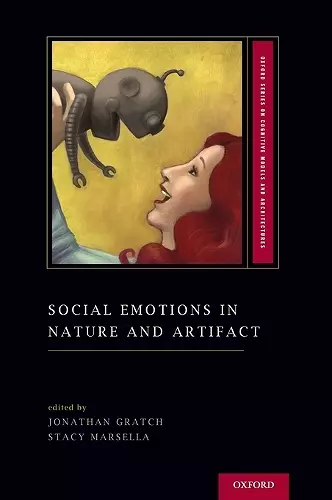Social Emotions in Nature and Artifact
Jonathan Gratch editor Stacy Marsella editor
Format:Hardback
Publisher:Oxford University Press Inc
Published:9th Jan '14
Currently unavailable, and unfortunately no date known when it will be back

Recent years have seen the rise of a remarkable partnership between the social and computational sciences on the phenomena of emotions. Rallying around the term Affective Computing, this research can be seen as revival of the cognitive science revolution, albeit garbed in the cloak of affect, rather than cognition. Traditional cognitive science research, to the extent it considered emotion at all, cases it as at best a heuristic but more commonly a harmful bias to cognition. More recent scholarship in the social sciences has upended this view. Increasingly, emotions are viewed as a form of information processing that serves a functional role in human cognition and social interactions. Emotions shape social motives and communicate important information to social partners. When communicating face-to-face, people can rapidly detect nonverbal affective cues, make inferences about the other party's mental state, and respond in ways that co-construct an emotional trajectory between participants. Recent advances in biometrics and artificial intelligence are allowing computer systems to engage in this nonverbal dance, on the one hand opening a wealth of possibilities for human-machine systems, and on the other, creating powerful new tools for behavioral science research. Social Emotions in Nature and Artifact reports on the state-of-the-art in both social science theory and computational methods, and illustrates how these two fields, together, can both facilitate practical computer/robotic applications and illuminate human social processes.
"This book is a takes a bold and interdisciplinary approach to understanding emotion. Featuring cutting edge theoretical work by the thought leaders in both emotion psychology and computer science, the result is a unique perspective on how emotions shape social interactions." Jeremy Bailenson, Founding Director, Stanford Virtual Human Interaction Lab, Co-author, Infinite Reality: The Hidden Blueprints of Our Virtual Lives
ISBN: 9780195387643
Dimensions: 180mm x 257mm x 23mm
Weight: 635g
224 pages